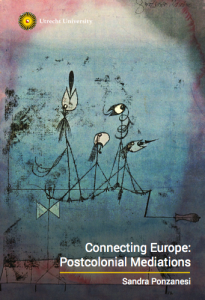News
New publication – Sandra Ponzanesi ‘Connecting Europe: Postcolonial Mediations (2016)
 The current refugee crisis, magnified by media sensationalism and political opportunism, brings into sharp focus internal tensions that threaten the very notion of Europe.
The current refugee crisis, magnified by media sensationalism and political opportunism, brings into sharp focus internal tensions that threaten the very notion of Europe.
In a wave of nostalgia for the false security of the old sovereign states, old borders are being re-established and Fortress Europe is imploding into a multitude of mini-fortresses, behind whose walls long-cherished European ideals are imperilled and civil liberties threatened in the name of national security.
Postcolonial Europe
So does Europe have a future? Where does Europe begin and where does it end? What is the point of Europe? If Europe is to remain a viable entity, we must engage with Europe from a postcolonial perspective. This means taking into account the notion of a Europe perceived through an awareness of many diverse entanglements — historical, disciplinary and institutional; a Europe seen in ‘deep time’. Crucially Europe must acknowledge and confront its own past, accounting for colonial legacies which, long after the old empires have disappeared, continue to menace our present.
Digitally connected migrants
The postcolonial project is also aspirational and future-oriented. It challenges us to account for our modern hyper-mediated world; a world in which the digital footprints of ‘connected migrants’ emerge as hybridised and heterogeneous forms of participation, changing the way we understand and account for social inclusion, gender emancipation and intercultural identities, and, by foregrounding the notion of a multidirectional and networked Europe in flux, changing the idea of Europe itself.
In her inaugural lecture Ponzanesi argues that a multimedia postcolonial approach helps to envision new, alternative, cosmopolitan perspectives. And right now you can download and enjoy a complimentary copy of this inaugural speech.
Download a free copy of Connecting Europe: Postcolonial Mediations (2016) here.
The inaugural lecture is also now available here.

